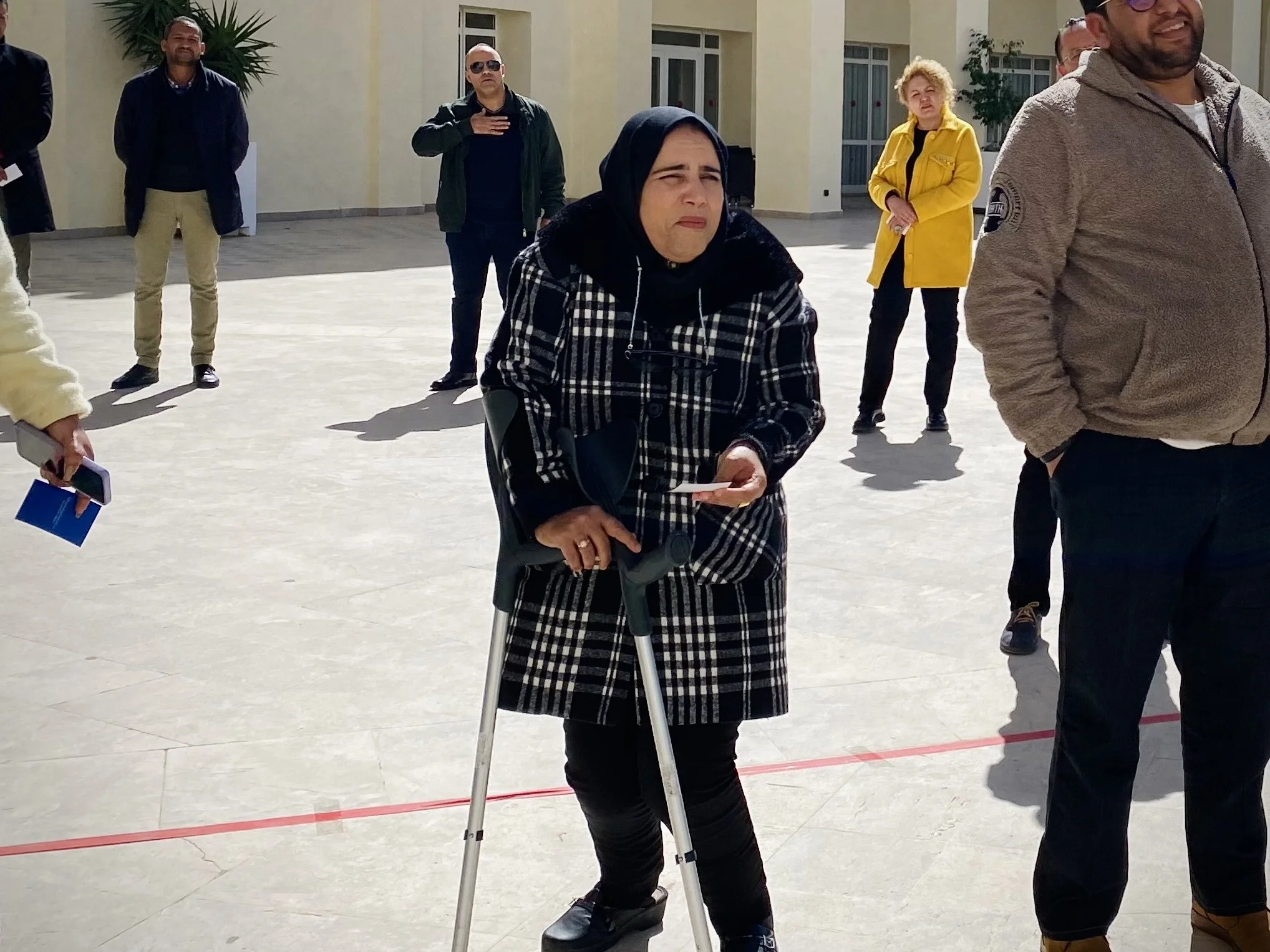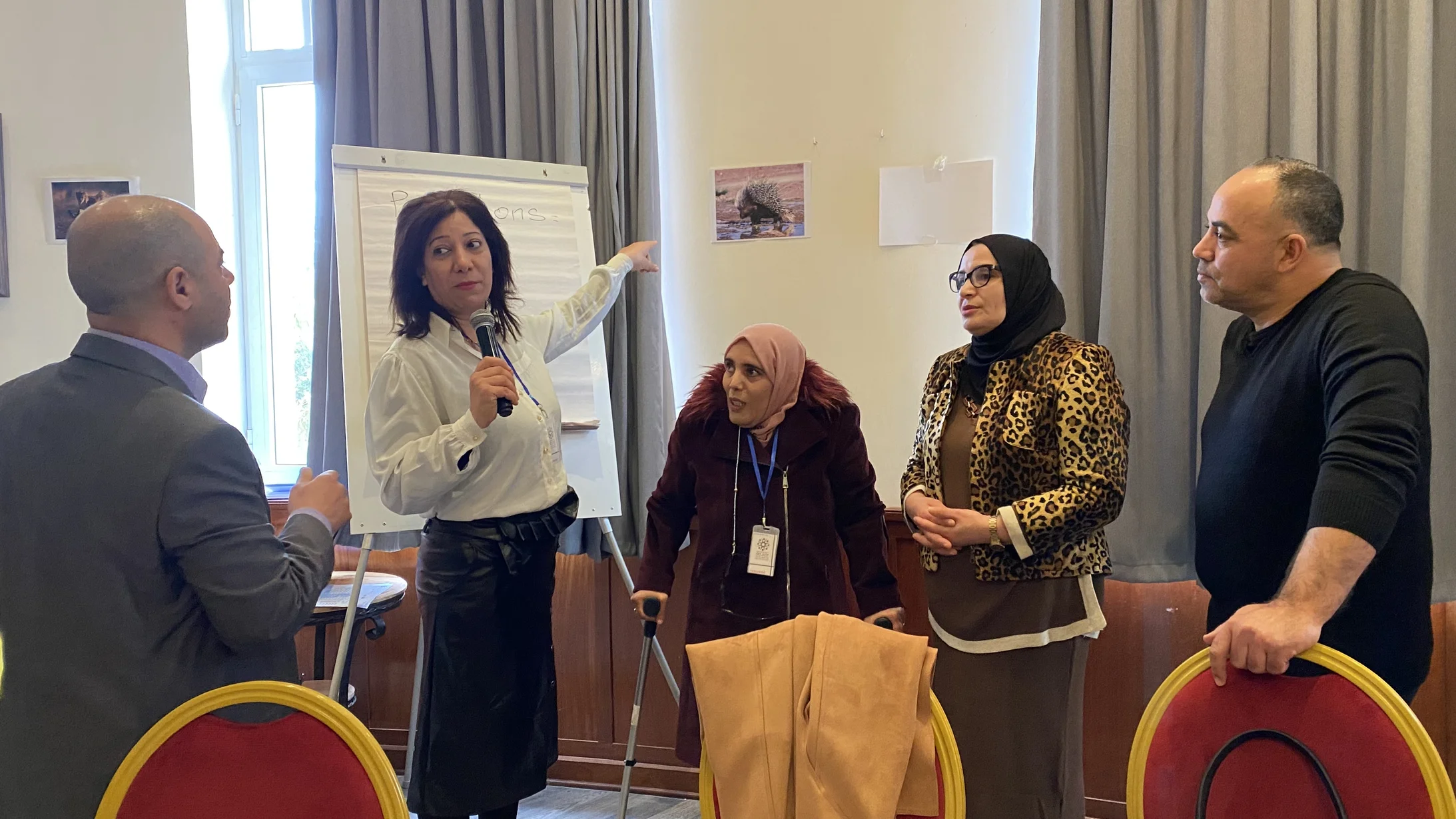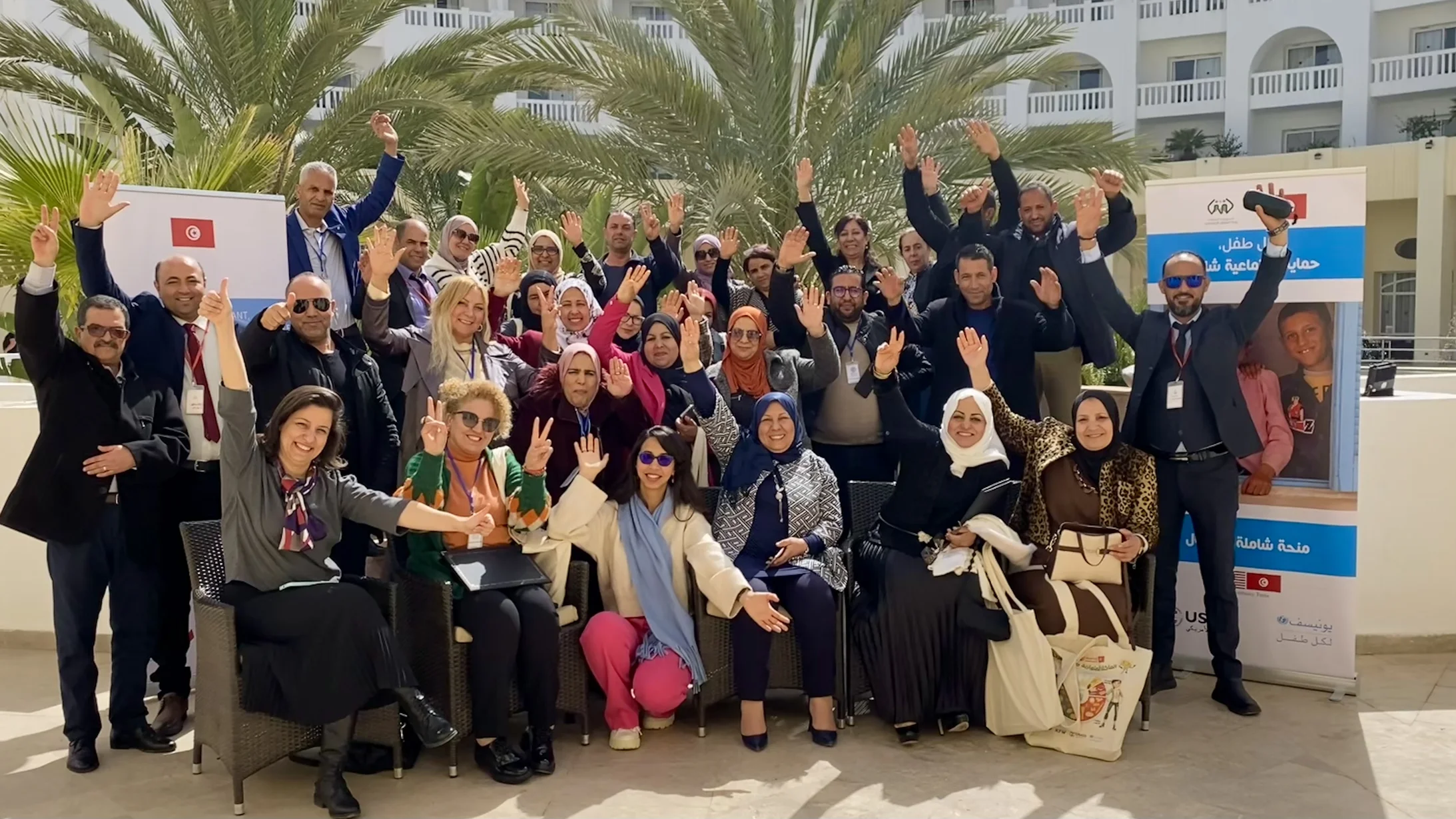Since 2019, UNICEF has supported the Tunisian government in strengthening the country’s social protection system. This also involves training selected social workers, such as Jamila.
The moment Jamila receives her certificate, she smiles. Jamila is one of 25 social workers in Tunisia who have just completed a training seminar. The multi-day training course is part of TRANSFORM, a UNICEF program specifically developed for Tunisia. It offers professionals like Jamila the opportunity to acquire advanced skills in the area of social protection.
Poverty is still widespread in Tunisia. The COVID-19 pandemic has further exacerbated the situation in the country. Today, 26 percent of Tunisia’s children live in poverty. Many of them do not attend school or drop out of school before graduation. Young refugees and children with disabilities are especially at risk.
Jamila, a social worker from Menzel Temime, knows this from her own experience. She was born with a movement disorder. At an early age she began years of medical treatment, which interrupted her schooling repeatedly. “This is not uncommon,” says Jamila. “Poor families in Tunisia must often decide between giving their children an education or medical treatment.”
Jamila was about to drop out of school as a teen when a doctor enrolled her in an educational program for children with disabilities. Her grades improved dramatically, and she went on to graduate from high school and attend college.
Today, Jamila works as a social advisor in the Nabeul Governorate region. Every day she advocates for children who, like her, come from precarious backgrounds. “My personal experience has given me a special sensitivity that is useful in this work.”
Since 2019, UNICEF has supported the Tunisian government in strengthening the country’s social protection system to give children in Tunisia – including those from socially disadvantaged backgrounds – the opportunity to develop their full potential. This important undertaking is supported by various development partners, including the Swiss Agency for Development and Cooperation (SDC).
«This initiative is important to us because of its focus on children.»
Fabrizio Poretti, Head of SDC’s cooperation office in Tunis
“This initiative is important to us because of its focus on children,” says Fabrizio Poretti, Head of SDC’s cooperation office in Tunis. “It aims to break the vicious cycle of inequality that passes on poverty from generation to generation. We are confident that we can combat socio-economic exclusion, bolster human capital and promote collective prosperity through investment in the social protection of children.”
In 2023, the SDC pledged over five million Swiss francs to help UNICEF’s work in Tunisia. The funds will be utilized over a five-year period and support various programs, including TRANSFORM.
“TRANSFORM gave me the opportunity to receive further training in the area of social protection and learn important key concepts," Jamila affirms. To date, over 125 social workers from Tunisia's various governorates have taken part in the program.
Jamila has already had the chance to put her newly acquired skills to use. For example in Nabeul, where a family had kept their two children with mental disabilities hidden from the world. “These siblings had no access to important services and health facilities,” Jamila explains. “My job now is to support the family and increase their awareness on the rights and needs of children with disabilities.”


